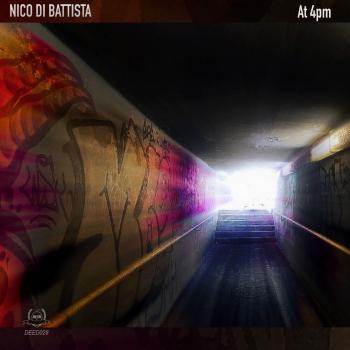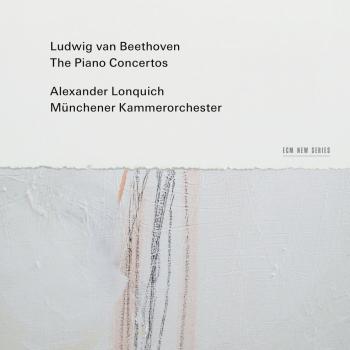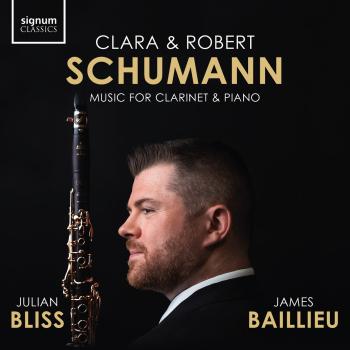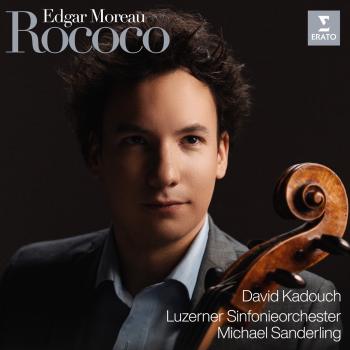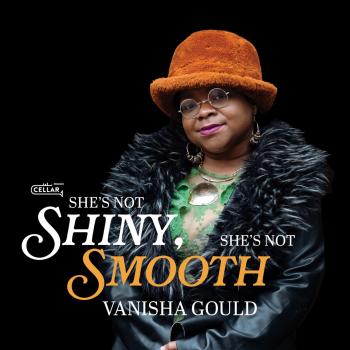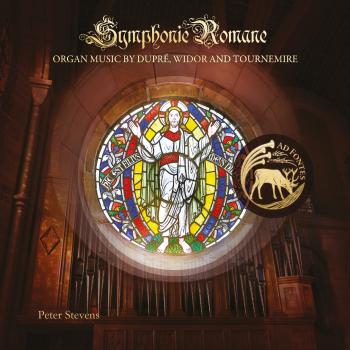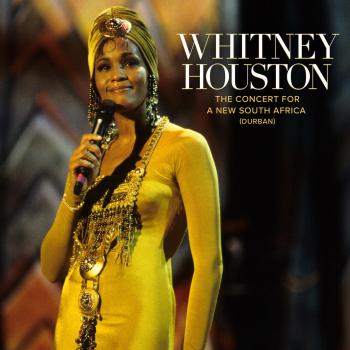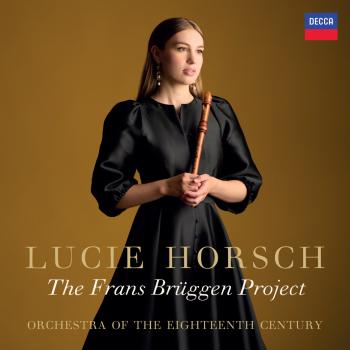
Miklós Rózsa: Orchestral Works Volume 1 BBC Philharmonic - Rumon Gamba
Album info
Album-Release:
2008
HRA-Release:
07.04.2011
Label: Chandos
Genre: Classical
Subgenre: Orchestral
Artist: BBC Philharmonic - Rumon Gamba
Composer: Miklos Rozsa (1907-)
Album including Album cover Booklet (PDF)
I`m sorry!
Dear HIGHRESAUDIO Visitor,
due to territorial constraints and also different releases dates in each country you currently can`t purchase this album. We are updating our release dates twice a week. So, please feel free to check from time-to-time, if the album is available for your country.
We suggest, that you bookmark the album and use our Short List function.
Thank you for your understanding and patience.
Yours sincerely, HIGHRESAUDIO
- 1 Overture to a Symphony Concert, Op. 26a (revised version) 09:07
- 2 I. Capriccio 05:02
- 3 II. Pastorale 07:15
- 4 III. Danza 07:45
- 5 I. Intrada 04:53
- 6 II. Intermezzo arioso 07:57
- 7 III. Finale: Allegro con brio 09:22
- 8 I. Marcia 04:09
- 9 II. Serenata 06:13
- 10 III. Scherzo 04:35
- 11 IV. Notturno 03:50
- 12 V. Danza 03:43
Info for Miklós Rózsa: Orchestral Works Volume 1
Rumon Gamba and the BBC Philharmonic here embark on a new orchestral series with music by Miklós Rózsa.
Rumon Gamba says of the project: ‘Having made many album of the film music by composers whose concert works is well known, for example, Arnold and Vaughan Williams, I thought it would be interesting to look at a very well-known film composer and profile his concert works, which have perhaps been overshadowed by his big-screen successes. The orchestral music of Miklós Rózsa is extremely exciting, passionate and intoxicating, and deserves to be better known.’
Rózsa is one of the giants of the film world, with scores for Ben Hur, Quo Vadis and El Cid to name but a few. Gamba continues, ‘I expect fans of early twentieth-century classical music in general and of the big Hollywood scores alike will find this music arresting and intensely beautiful’.
Despite his many Hollywood film commitments, the composer always made time to write the music that was most important to him, that for the concert hall. Once settled in Hollywood, Rózsa was able to negotiate a beneficial contract which allowed him to spend the summer months writing his serious music at his Italian retreat, and the winter months in Hollywood composing music for films. The four works recorded on this first volume offer a strong impression of his concert style, one which the leading conductors of the day held in high regard. The ebullient Three Hungarian Sketches was the official Hungarian entry at the International Music Festival in Baden-Baden in 1938. The large late Tripartitia, composed in 1971, has an earthy quality but exudes also in places an evocative nocturnal mood. It is complemented by two works in a lighter vein, the Overture to a Symphony Concert and the Hungarian Serenade.
Rózsa developed a unique musical voice highly influenced by his Hungarian roots, and his works often dazzle with virtuosity. The BBC Philharmonic pull out all the stops to play these works with the precision and passion they require. This is the launch of a very special project for Chandos.
“Rózsa's Hungarian roots… were …expressed… in the Overture to a Symphony Concert… a bright and positive score which would grace any concert programme. Most impressive of all is the Tripartitia (1971, rev 1972), its constituent Intrada, Intermezzo and rather Waltonian Finale showing Rózsa developing in a new direction late in his career. Excellent performances and superlative sound...” (GRAMOPHONE)
Rozsa: Three Hungarian Sketches, Op. 14
Hungarian Serenade, Op. 25
Overture to a Symphony Concert, Op. 26a
Tripartita, Op. 33
BBC Philharmonic
Rumon Gamba
Miklos Rozsa: Overture to a Symphony Concert, Op. 26a (revised version)
Overture to a Symphony Concert, Op. 26a (revised version)
Miklos Rozsa: 3 Hungarian Sketches, Op. 14a
I. Capriccio
II. Pastorale
III. Danza
Miklos Rozsa: Tripartita, Op. 33
I. Intrada
II. Intermezzo arioso
III. Finale: Allegro con brio
Miklos Rozsa: Hungarian Serenade, Op. 25
I. Marcia
II. Serenata
III. Scherzo
IV. Notturno
V. Danza
BBC Philharmonic
Widely recognised as one of Britain’s finest orchestras, the BBC Philharmonic has its own recording studio at BBC Manchester, where it records programmes and concerts for BBC Radio 3. It also performs around 20 concerts each year at Manchester’s magnificent Bridgewater Hall. The Orchestra has built a worldwide reputation for outstanding quality and committed performances over a wide ranging repertoire.
In September 2007 the BBC Philharmonic announced a major new partnership with Salford City Council, enabling the Orchestra to build active links with Salford and its communities. From 2011 the BBC Philharmonic will be based in a dedicated state-of-the-art studio at the BBC’s new home in the North – MediaCityUK, Salford Quays. This will be its base for community and learning activities in Salford and in the meantime the Orchestra will work closely with Salford City Council, the Salford Music Service (MAPAS) and varied communities in the area.
Gianandrea Noseda is Chief Conductor of the BBC Philharmonic and has been at the helm of the Orchestra since 2002. In 2006 he became Music Director of the Teatro Regio in Turin. His role there runs alongside his work with the BBC Philharmonic.
The Orchestra is regularly invited to major European cities and festivals. After a highly successful tour of Japan in 2005, Gianandrea and the Orchestra returned there in March 2008 for a three-week tour that included three concerts in Tokyo, there are plans to return in 2011. At the end of 2008 the Orchestra visited Beijing with Chief Guest Conductor Vassily Sinaisky.
The Orchestra’s policy of introducing new and adventurous repertoire has meant that many of the world’s greatest composers have taken the BBC Philharmonic podium, among them Berio, Copland, Penderecki, Tippett and Walton.
In recent years the BBC Philharmonic, in partnership with The Royal Northern College of Music, has collaborated with many composers, including Sir Harrison Birtwistle, Hans Werner Henze, Mark-Anthony Turnage, Malcolm Arnold and Unsuk Chin. Conductors with whom the Orchestra regularly works include Gunther Herbig, Yan Pascal Tortelier (Conductor Laureate), Yutaka Sado, Juanjo Mena and Ludovic Morlot.
The Orchestra's Learning/Community team worked with over 15,000 people last year in various educational and community settings and some more unusual places - council offices, supermarkets and shopping malls, taking music and the arts to people wherever they are.
The Orchestra's new relationship with Salford City Council also saw the creation of the Salford Family Orchestra in 2009 and their debut concert at the Royal Albert Hall during the Proms.
Rumon Gamba
British conductor Rumon Gamba is Principal Conductor and Musical Director of the Symfoniorkestern Norrlandsoperan. Between 2002-2010 he was Chief Conductor and Music Director of the Iceland Symphony Orchestra. He regularly conducts the BBC Orchestras and has appeared at the BBC Proms on a number of occasions. He records exclusively for Chandos.
Rumon Gamba has given several high profile premieres. In 2010/11 he will conduct the Swedish premiere of Poul Ruders' Dancer in the Dark with the Norrlands Opera. Following his successful opera debut conducting Candide with the English National Opera he will return there in spring 2011 for the world premiere of Nico Muhly’s opera Two Boys. He has also conducted the Icelandic premiere of Mark-Anthony Turnage’s Scherzoid (a co-commission with New York and London Philharmonic orchestras) and the world premiere of Brett Dean’s Viola Concerto with the BBC Symphony Orchestra. In celebration of Hans Christian Andersen’s 200th birthday he gave the world premiere of Per Norgard’s oratorio The Will O The Wisps Go To Town with the City of Birmingham Symphony Orchestra.
Rumon Gamba has recently worked with Orquesta Nacionales de Espana, London Philharmonic Orchestra and the Tokyo Symphony Orchestra. Upcoming engagements include Orquesta Sinfónica del Principado de Asturias, Ulster Orchestra, BBC National Orchestra of Wales, Aalborg Symfonieorkester and the Berner Symphonie-Orchester.
Following on from his tremendously successful first season with the Symfoniorkestern Norrlandsoperan, this season will open with a Schumann symphony cycle (performing all on two consecutive nights). May 2011 will see the Swedish premiere of Mark-Anthony Turnage’s Blood on the Floor as part of their contemporary festival. Rumon Gamba will also be implementing his late night concerts, highly successful in Iceland and specifically aimed at young adults.
With the Iceland Symphony Orchestra, recordings for Chandos Records include two volumes of the orchestral works of Malcolm Williamson and, most recently, an ongoing series of D’Indy’s Orchestral Works – the first of which was nominated for a Grammy Award. Other recordings for Chandos include several award-winning and Grammy-nominated CDs as part of their acclaimed Film Music series.
Within North America Rumon Gamba has worked with the New York Philharmonic, Toronto and Indianapolis Symphony orchestras, National Arts Center Orchestra Ottawa and the Florida Philharmonic Orchestra. He has worked with all the major Australian orchestras and guest conducted with the New Zealand Symphony Orchestra and the Hong Kong, Osaka and Nagoya Philharmonic orchestras.
Nicole Tibbels
Nicole Tibbels was awarded a scholarship to the Guildhall School of Music and Drama, having first obtained an honours degree in French at Sheffield University.
She came to international prominence when she made her debut at the Royal Opera House Covent Garden as the Countess in Massenet's 'Chérubin' conducted by John Eliot Gardiner. She was immediately re-engaged to sing the roles of L'Amour and La Folie in Rameau's 'Platée' with the Mark Morris Dance Group and conducted by Nicholas McGegan. Also for the Royal Opera, she sang the role of Fido in Britten's 'Paul Bunyan' conducted by Richard Hickox, and most recently Clorinda in Rossini’s ‘La Cenerentola’ with Mark Elder. Other operatic roles include Fiakermilli (‘Arabella’) for Opera North; Nerina (Handel’s 'Le Pescatrici') for Garsington Opera; Queen of the Night (‘Die Zauberflöte’) with Travelling Opera and European Chamber Opera; Zerbinetta (‘Ariadne auf Naxos’) at the St Endellion Festival; Konstanze (‘Die Entführung aus dem Serail’) for Perth Festival Opera; Alice (‘Falstaff’), Sofia (‘Il Signor Bruschino’) and Rossini (‘Zuppa Inglese’ by Daryl Runswick) for Pimlico Opera; Neighbour (‘Blood Wedding’ by Nicola LeFanu) for Women's Playhouse; Hardwick (‘Camera’ by Anthony Moore) for Channel 4; Hembra (‘Yerma’ by Villa-Lobos) with Odaline de la Martinez; Serpina (‘La Serva Padrona’) for Broomhill Opera; ‘Kopernikus’ by Claude Vivier for Pierre Audi at the Almeida Festival; ‘Mr Emmet Takes a Walk’, by Sir Peter Maxwell Davies, and staged performances of Ligeti’s ‘Aventures’ and ‘Nouvelles Aventures’ with Psappha.
Craig Ogden
The Australian born guitarist Craig Ogden is one of the most exciting artists of his generation. He has recorded for major record companies and has performed concertos with orchestras including the London Symphony, London Philharmonic, Hallé, BBC Philharmonic, City of Birmingham Symphony, BBC National Orchestra of Wales, Bournemouth Symphony and Melbourne Symphony Orchestras. His début solo recording of contemporary British works received wide acclaim and a Grammy nomination. Ogden performs as a soloist and chamber musician all over the world and often records for film, featured recently in the very successful film Notting Hill. He is Senior Lecturer in Guitar at the Royal Northern College of Music in Manchester in England.
Martin Robertson
Martin graduated from the Royal College of Music in 1984 having studied Saxophone and Clarinet as joint principle study under Stephen Trier and John McCaw. Whilst at college Martin won several woodwind prizes including the Boosey and Hawkes Music Prize. He returned to the Royal College of Music in 1994 as a Professor of Saxophone.
Martin made his solo debut at the Purcell Room in 1986 with Mark-Anthony Turnage's 'Sarabande'. From here on there has been a close relationship between the two. 'Your Rockaby' was written specifically for Martin – Mark dedicated the movement 'Lullaby for Charlie' to Martin's severely autistic son. 'Rockaby' was premiered at the Royal Festival Hall with the BBC Symphony Orchestra and was later performed at the Royal Albert Hall during the Proms season. It too was the featured work in the BBC TV series 'The British Century – 'Turnage''. It has gone on to be performed by the Los Angeles and London Philharmonic Orchestras
.
Booklet for Miklós Rózsa: Orchestral Works Volume 1

